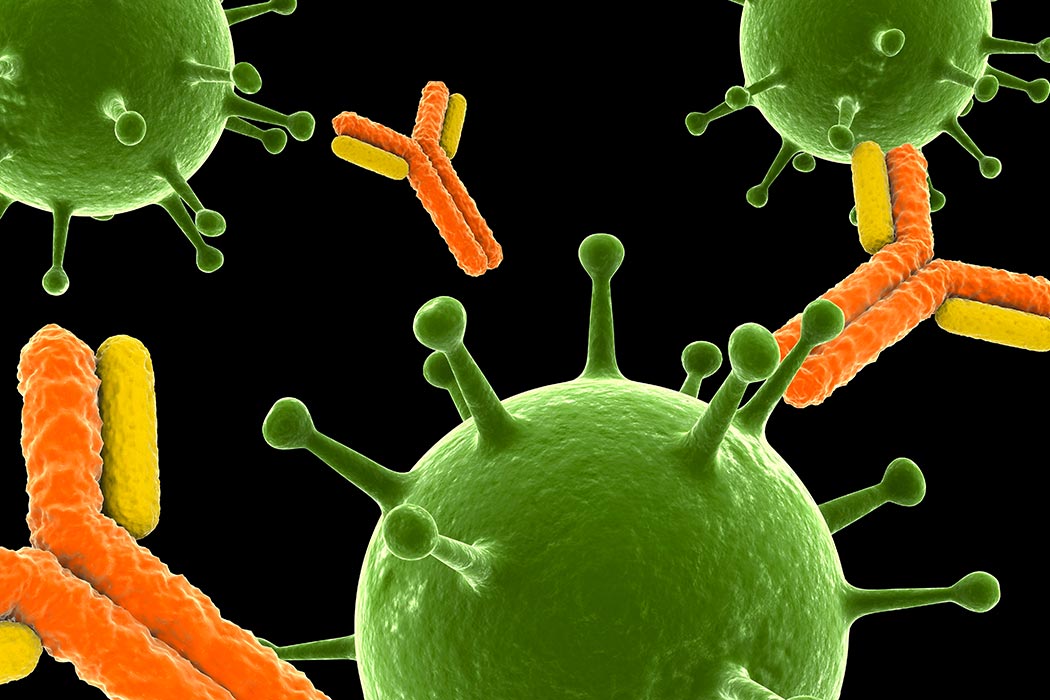COVID-19 Studies: Many Recovered Patients Have No Or Very Low Antibody Counts, Risking Reinfections
Source: COVID-19 Studies Apr 19, 2020 5 years, 8 months, 1 day, 4 hours, 11 minutes ago
COVID-19 Studies: Shanghai researchers are warning that a lot of recovered patients showed no signs of possessing the neutralising proteins or antibodies while majority had extremely low counts.

These could have major implications for vaccine development and herd immunity.
The researchers also warned that recovered patients also possessed a higher risk of reinfections.
The team from Fudan University analysed blood samples from 175 patients discharged from the Shanghai Public Health Clinical Centre and found that more than a third had unexpectedly low levels of antibodies. In some cases, antibodies could not be detected at all.
https://www.medrxiv.org/content/10.1101/2020.03.30.20047365v1
Though the study was preliminary and not peer-reviewed, it was the world’s first systematic examination of antibody levels in patients who had recovered from Covid-19, the disease caused by the SARS-Cov-2 coronavirus.
Almost all of the patients had recently recovered from mild symptoms of the disease and most of those with low antibody levels were young. The researchers excluded patients who had been admitted to intensive care units because many of them already had antibodies from donated blood plasma.
Typically, antibodies are generated by the immune system and have unique chemical structures to inhibit specific pathogens. The coronavirus antibody intercepts the spike protein on the viral envelope to prevent it from binding with human cells.
The Chinese researchers said they were surprised to find that the antibody “titer” value in about a third of the patients was less than 500, a level that might be too low to provide protection.
More than 30 per cent of patients failed to develop high titers of neutralising antibodies after Covid-19 infection. However, the disease duration of these patients compared to others was similar.
Surprisingly, the researchers also found that antibody levels rose with age, with people in the 60-85 age group displaying more than three times the amount of antibodies as people in the 15-39 age group.
We desperately need your kind help! Please help support our site and our initiatives to propel and aid research by making a donation to help sustain the site. We are also trying to raise funds to help poor undocumented refugees who have no access to public healthcare during the COVID-19 crisis. Donations are accepted via paypal: https://www.thailandmedical.news/p/sponsorship
The implications also were that the low amounts of antibodies could affect herd immunity resistance to the disease among the general population to stop its spread.
Professor Dr Huang Jinghe, lead researcher said, “This is a clinical observation we made at the front line. What this will mean to herd immunity will require more data from other parts of the world.”
<
;br />
Dr Huang said 10 of the patients in the study had an antibody presence so low it could not even be detected in the laboratory.
However these patients experienced typical Covid-19 symptoms including fever, chill and a cough, but might have beaten back the virus with other parts of the immune system such as T-cells or cytokines. How they did this was still unclear.
Dr Huang added, “Vaccine developers may need to pay particular attention to these patients. If the real virus could not induce antibody response, the weakened version in the vaccine might not work in these patients either.”
The researchers also found that the Covid-19 antibody could bind with a distantly related strain that caused an outbreak of severe acute respiratory syndrome or SARS in 2003 and also with certain other coronaviruses.
However the binding could not suppress Sars virus replication in cells, dashing hopes of developing a vaccine for two or even more coronavirus strains at once.
Dr Wang Chen, a Professor and senior scientific adviser to the central government warned that it was way too early to declare victory against the disease even in China. He commented, “Who knows whether this will become something like a seasonal flu, or chronic disease like hepatitis B, or just vanish like Sars?”
For more on the latest
COVID-19 studies, keep logging to
Thailand Medical News.
